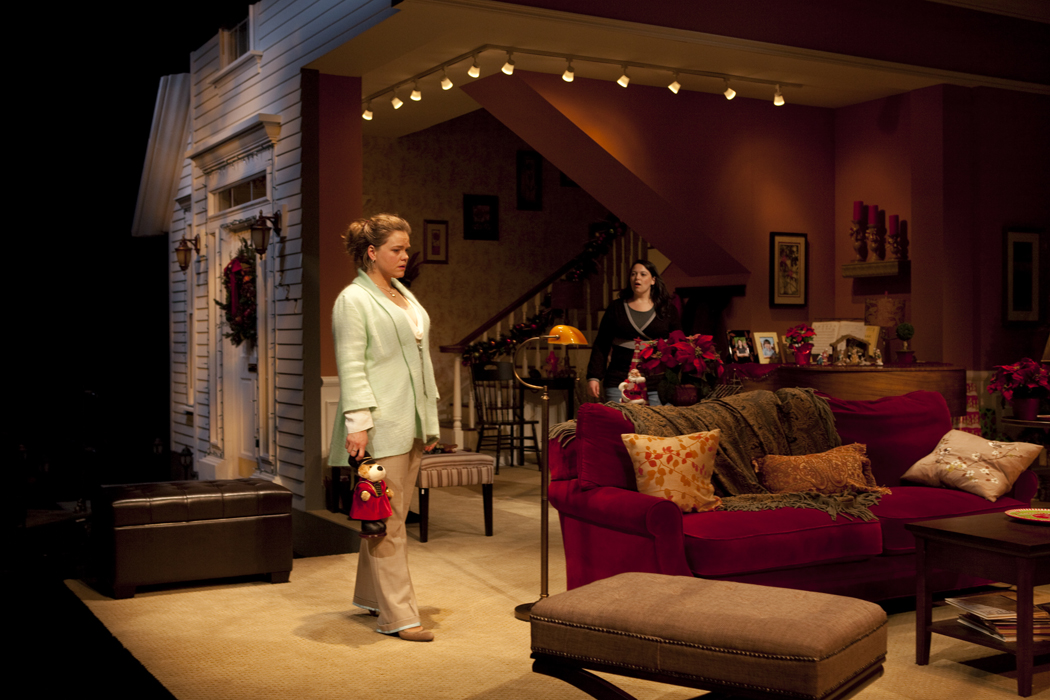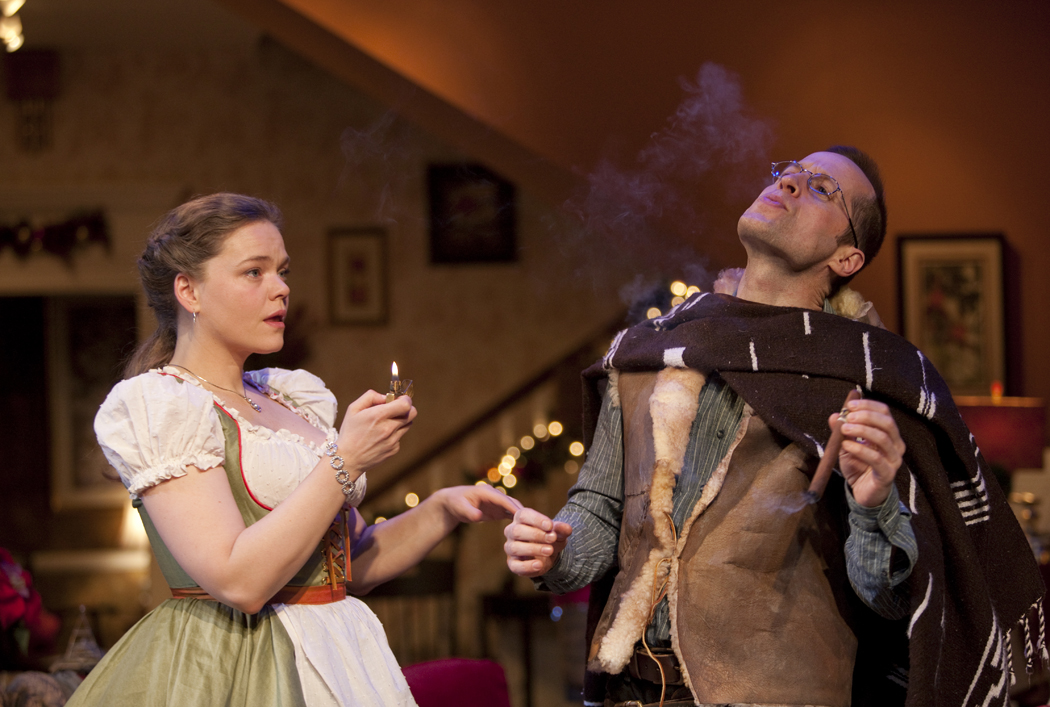Shirley Jackson’s We Have Always Lived in the Castle (1962) celebrates social dysfunction. Whatever one’s opinion of the oddball Blackwoods – Constance, in her twenties, Mary Katherine (Merrikat), eighteen, and old, wheelchair-bound Uncle Julian – one can’t help feeling that their seclusion from the townsfolk of Bennington, VT, is merited, that something sets the Blackwoods apart from the hoi polloi, and that “something” makes the Blackwoods worth knowing about. The “something,” as so often happens in Gothic fiction, is a dark past, but in this case, it’s not a secret, but rather something everyone knows: Mrs. Blackwood and Mr. Blackwood, the latter the brother of Julian, and Julian’s wife, and Tom, the girls’ younger brother, all died of arsenic consumption six years ago. The poison, which Constance bought to kill rats, made its way into the sugar, you see, sugar which was used as topping for early raspberries served by Constance at a particularly fateful dinner. Constance, who never eats sugar, was spared, as was Merrikat, sent to her room without any dinner. Julian, who sweetened his dessert sparingly, was left an invalid. Constance, of course, was acquitted of murder, but condemned for the deaths by the townspeople.
Adam Bock and Todd Almond’s musical of the novel, directed by Anne Kauffman, now playing at The Yale Repertory Theatre, opens with Merrikat, played with a sly and wiry girlishness by Alexandra Socha, stepping to the footlights to regale us in song about “We Blackwoods.” The upshot of Merrikat’s every pronouncement is that insular families, whatever their oddities, are preferable to intrusive neighbors, who should simply butt out. Certainly that’s the point of Jackson’s novel, where some personally important aspect of the inner life must resist attack by the forces of uninspired and uninspiring conformity, tiresome normality, and aggressive mediocrity.
In the musical, those qualities take the form of a stock cast of locals who like to amuse themselves with catty remarks and provoking jokes at the Blackwoods’ expense. But the real bearer of a threat comes from within the Blackwood clan itself. Young cousin Charles (Sean Palmer, with a good voice and engaging dance moves), son of the other Blackwood brother, Arthur, shows up after the death of his destitute father to see what’s doing with the branch of the family that still has at least a large, crumbling property to their name, a name now primarily upheld by retiring, yet charming Constance (Jenn Gambatese), tireless cook and gardener and caretaker of Julian. Constance, played with a light, maidenly obtuseness by Gambatese, seems content with her twilit spinsterhood, until Charles arrives and makes her think about herself and duets with him (the sprightly “She Didn’t Get Very Far”) and dancing (to a wry little ditty called “The Stomp”) and longing (the evocative “come to me” interlude).
If this were your typical musical, we’d be rooting for Charles to sweep Constance off her feet and rescue her from this premature mausoleum. But this isn’t that musical, and we aren't.
In part it’s because Merrikat got there first: she sweeps us away with her confidential songs, her winning manner, her knowing certainty that Charles, ultimately, only wants to take away the sisters’ peace without giving anything of value in return. By the time the townfolk stage an outright siege on the castle – echoing all those horror films where the villagers attack the stronghold of Frankenstein to destroy the monster they can’t understand – Merrikat, who had more or less challenged Charles to a duel, has proven her point.
The stage business in this play is captivating enough to make us want to stay in the castle with the Blackwoods – the American Gothic gloom of David Zinn’s set, Ilona Somogyi’s gorgeous costumes for the ghostly ancestors who mainly keep to the upper story, intoning their musical support of the surviving Blackwoods’ isolation, the at-times sharp, at-times senile comments by Uncle Julian (a usefully comical portrayal in Bill Buell’s show-stealing hands), the musical numbers, directed by Dan Lipton, that are revealing dialogues, and the arch musings of Socha’s irrepressible Merrikat.
The World Premiere of We Have Always Lived in the Castle; Book and Lyrics by Adam Bock; Music and Lyrics by Todd Almond; Based on the novel by Shirley Jackson; Directed by Anne Kauffman
September 17 to October 9, 2010, Yale Repertory Theatre, at the University Theatre, 222 York St.
 Director Devin Brain and the cast of the current Yale Summer Cabaret show, The Phoenix, have given themselves quite a task: to render a situation that could be either fantasy or reality, when either is potentially alienating. Based on a haunting story by best-selling Australian author Isobelle Carmody, the play has been derived by the cast via an improvisational process of discovery, which means that the presentation is not scripted so much as agreed upon through trial and error during a long period of gestation.
Director Devin Brain and the cast of the current Yale Summer Cabaret show, The Phoenix, have given themselves quite a task: to render a situation that could be either fantasy or reality, when either is potentially alienating. Based on a haunting story by best-selling Australian author Isobelle Carmody, the play has been derived by the cast via an improvisational process of discovery, which means that the presentation is not scripted so much as agreed upon through trial and error during a long period of gestation.
 The Long Wharf Theatre production of Henrik Ibsen's A Doll's House managed a surprising feat: it made the play more entertaining without significantly altering it. If you're a purist who wants to see Ibsen played straight, it does that; but if you think that a play like ADH, with its winsome wifey who gets into some hot water due to an "innocent" forgery, then gets out of it only to slam the door on her happy-ever-after home, is a bit dated and could use some kind of make-over, well, this show does that too.
The Long Wharf Theatre production of Henrik Ibsen's A Doll's House managed a surprising feat: it made the play more entertaining without significantly altering it. If you're a purist who wants to see Ibsen played straight, it does that; but if you think that a play like ADH, with its winsome wifey who gets into some hot water due to an "innocent" forgery, then gets out of it only to slam the door on her happy-ever-after home, is a bit dated and could use some kind of make-over, well, this show does that too.
 “Art” by Yasmina Reza first appeared in Paris in 1995. Shortly afterwards it was translated into English for the British stage and turned up at the Royale Theatre (now the Bernard B. Jacobs Theatre) on Broadway on March 1, 1998. The cast was stellar for this three-person play, performed without intermission. The six-month Broadway run included Alan Alda, Victor Garber, and Alfred Molina, all well known film and theatre performers.
“Art” by Yasmina Reza first appeared in Paris in 1995. Shortly afterwards it was translated into English for the British stage and turned up at the Royale Theatre (now the Bernard B. Jacobs Theatre) on Broadway on March 1, 1998. The cast was stellar for this three-person play, performed without intermission. The six-month Broadway run included Alan Alda, Victor Garber, and Alfred Molina, all well known film and theatre performers. Bernard-Marie Koltès' Battle of Black and Dogs (Combat de nègre et de chiens), translated by Michaël Attias, and directed by Robert Woodruff, is the second play this season at the Yale Rep to take us to vague environs in Africa to witness a drama among a small group of people cut off from the world at large. Like Danai Gurira's Eclipsed, BBD places us in a compound, but this time it's a "construction site run by a foreign company in a West African country, anywhere from Senegal to Nigeria," where the main characters, white and French, are confronted by Alboury (Albert Jones), a member of a local Wolof tribe who wants to retrieve the body of a worker at the site who has recently died or been killed.
Bernard-Marie Koltès' Battle of Black and Dogs (Combat de nègre et de chiens), translated by Michaël Attias, and directed by Robert Woodruff, is the second play this season at the Yale Rep to take us to vague environs in Africa to witness a drama among a small group of people cut off from the world at large. Like Danai Gurira's Eclipsed, BBD places us in a compound, but this time it's a "construction site run by a foreign company in a West African country, anywhere from Senegal to Nigeria," where the main characters, white and French, are confronted by Alboury (Albert Jones), a member of a local Wolof tribe who wants to retrieve the body of a worker at the site who has recently died or been killed. Review of
Review of